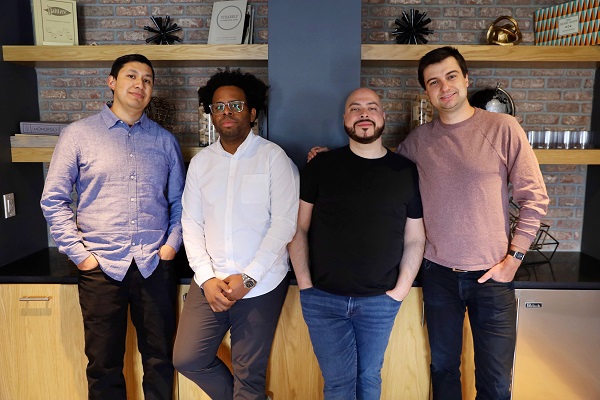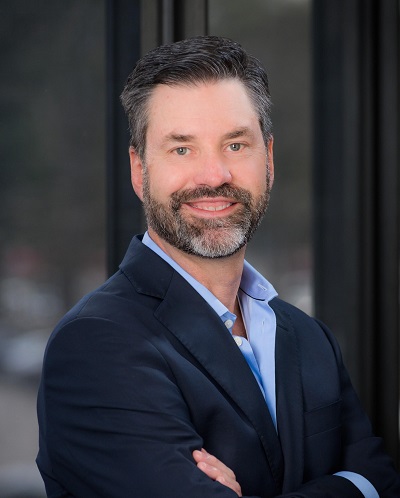Interview with Nestor Solari, whose Startup Sigo Received $1.5 Million to Combat Discrimination in Auto Insurance
According to Nestor Hugo Solari, whose insuretech startup, Sigo, is headquartered in Jersey City, the United States needs insurance that will treat Latinx and working-class members of society fairly.
The company recently received $1.5 million in a seed round, with participation from Amicle Capital, Bonded Capital Ventures, Demeter Capital (Jupiter, Fla.), Financial Solutions Lab (Chicago), Park City Angels (Park City, Utah), and gANGELS. The investment will allow Sigo to launch an auto insurance product that removes biased rate factors from day one of the underwriting process, the company said in a release.
Solari, cofounder and CEO, was born and raised in New Jersey, and has recently returned home and brought his company back with him. Another cofounder, Júlio Erdos, who is the company’s COO, lives in Brooklyn.
“Sigo provides a mobile-first auto insurance platform that delivers affordable access to auto insurance to immigrants and the working class. Primarily with immigrants and access in auto insurance, you see this redlining effect. And so, for reasons like education, employment, or even credit score, a lot of people are being overcharged or shut down under traditional channels. So that’s really what we’re trying to attack,” Solari stated.
“A big challenge is the bias of underwriting factors considered in today’s auto insurance industry. These traditional insurers have done a great job in reaching a very specific type of customer: suburban, likely affluent, likely buying increased limits. And their models are great for that customer. But they’re not so great for a customer like my father, who immigrated here and didn’t have a credit score and had only a sixth-grade education, who worked a blue-collar job for 30 years — even though he was a great risk,” he said.
The Entrepreneurial Journey
Solari’s entrepreneurial journey began at Wharton Business School, where he met his cofounder Erdos, who was a Brazilian immigrant. Both were pursuing dual-degree programs in business and international studies with an emphasis on Latin America, and they became good friends. When Erdos spoke with Solari about his interning prospects, Solari asked him to come aboard, and together they founded Sigo.
Wharton was a great place to get started, Solari said. There were many entrepreneurial grant programs available. Sigo received about $30,000 in no-strings-attached financing to get started with the research needed to begin the company. “Then we were accepted into the Entrepreneurs Roundtable Accelerator, in New York. That was our first institutional round of funding, and we went through the accelerator when we graduated, in 2019.”
After their stint at ERA, Solari and his cofounder began selling insurance, bringing in a number of team members to do the same. The company became a “managing general agency,” and has since written premiums worth hundreds of thousands of dollars through its agency business. It has also maintained a customer retention rate of more than 80% in Texas and California, the two states where customers can now access the company’s bilingual platform. The cofounders considered this two-year period one of learning the ropes, to see what they needed to do to help the Latinx community and devise a way to fix the bias problem.
Along the way, “we’ve been able to bring in a bunch of investors with a lot of insurance and startup expertise that have been super valuable, and we’ve been able to build a roster of investors that know the insurance space and that had great connections that can help us build the company,” said Solari.
He added that the financing has come through angels they connected with through their adviser and people they know through their careers. “We have a pretty good mix of institutions and angel investors getting involved in this round.”
Advice from the startup’s board has been invaluable to the company, Solari noted. “The advice given to startups is often ‘move fast and break things.’ However, in insurance there are a lot of laws and regulations that we have to make sure we don’t break. We are moving fast, but we are making sure we are compliant, following the letter of the law and also building a product we think our customer deserves,” he said.
All Latino And Black Leadership Team
“Our team is all Latino and Black, in terms of our founding and executive leadership team,” Solari stated. “And I think that makes a difference. We’re very much conscious that we’re solving problems for our community, and for people we know and want to help. And, so, I think that gets us a lot closer than most of the people in insurance to the kind of people we want to serve.”
The platform was developed in-house by another cofounder the founders brought on board, Ivan Arambula, who is now the vice president of engineering. Arambula is from Southern California, the child of Mexican immigrants, and has spent his entire career in startups, building technology. “Up until a few months ago, he had developed 100 percent of our platform, which we are using to sell insurance as a broker or agent,” Solari stated.
“A couple of months ago we hired some offshore engineers, so now our engineering team is up to five. Most of the engineers are based in Latin America and are being run by Ivan, and we’ve been taking this next step to build the full technology we need to be an insurance company and issue our own insurance product.”
Helping with this giant undertaking is adviser Karl Gouverneur, who was the former CTO of Northwestern Mutual (Milwaukee) and also of Safeco Insurance (Seattle), one of the rare Latino executives in insurance, Solari stated. “His advice has been invaluable in our taking on this very large technical undertaking.” The company also has other advisers, such as Bill Goddard and Bob Sargent, veteran insurance industry executives with expertise in insurance law and banking. These advisers, who have bought and sold businesses, have been essential for providing feedback to the startup leadership team.
Solving Latinx Customer Problems
The company is building a mobile-first product, because not every customer they want to serve has access to a laptop, but most do have smart phones.
Solari noted that after he graduated from a fancy school and lived in a fancy zip code, he didn’t have a problem getting insurance. But, he said, “my aunt, who doesn’t have a college education, might live in the wrong zip code and work in a supermarket. Even though she’s never missed a payment and has never had an accident, she could be blocked out of traditional channels. She may be forced to go to a brick-and-mortar store, which is only open Monday through Friday. She may be forced to get a babysitter, to physically go to a store to try for insurance.”
The company’s product will solve all that. She will be able to get insurance from her mobile phone at home, and it will be in the language she understands.
Another problem that’s particular to the Latino community, whether immigrant or not, is the language challenge, Solari said. “Our full platform is bilingual end-to-end, in English and Spanish. The majority of our customers are Spanish natives and come to us through our Spanish language channels. … We found that people were getting locked out of traditional online sources because of language challenges. They then went to brick-and-mortar just to get that personal advice they needed in Spanish.”
Sigo will be able to provide that service digitally, and “not just through an elegant product that can help people go through it … we provide explainer videos and blog posts and resources for our customers. We teach them why they might pay more and why they might pay less, and how they can go about it.”
The company is attacking insurance rating variables that can have a negative impact on immigrants. For example, credit scores. “Just because you have a lower credit score doesn’t mean you’re overstressed or unreliable.” As an alternative to using credit scores as an underwriting factor, the company is introducing “the first Spanish-language telematics app in the U.S.” It will provide Sigo with driving-related data, and the app will help customers become better drivers by providing insights into their driving behaviors.
If Solari fears that the large insurance companies will come after this small interloper, he didn’t let on. “There’s a huge lack of diversity in the insurance industry, particularly when you look at black and Latino executives and higher-level managers,” he said. They’re “extremely underrepresented, which creates this kind of gap in understanding and familiarity with the market. I jumped into this headfirst … I knew there was a problem because I interacted with my family members that had a lot of insurance issues.” It’s a lot harder for the big insurance companies to see these problems and do something about them, he added.
We asked Solari what his biggest challenges are, and he said that, honestly, it was getting the word out and reaching the right audience. You can’t just use Google. “When I tell people I’m starting an auto insurance company, they say ‘could you have gone to a more competitive space?’ However, this is a very profitable industry, and investors are interested. … Once we get the word out, I think we’ll do well. We’ll build a bond with that customer by giving them a superior product designed particularly for them.”



